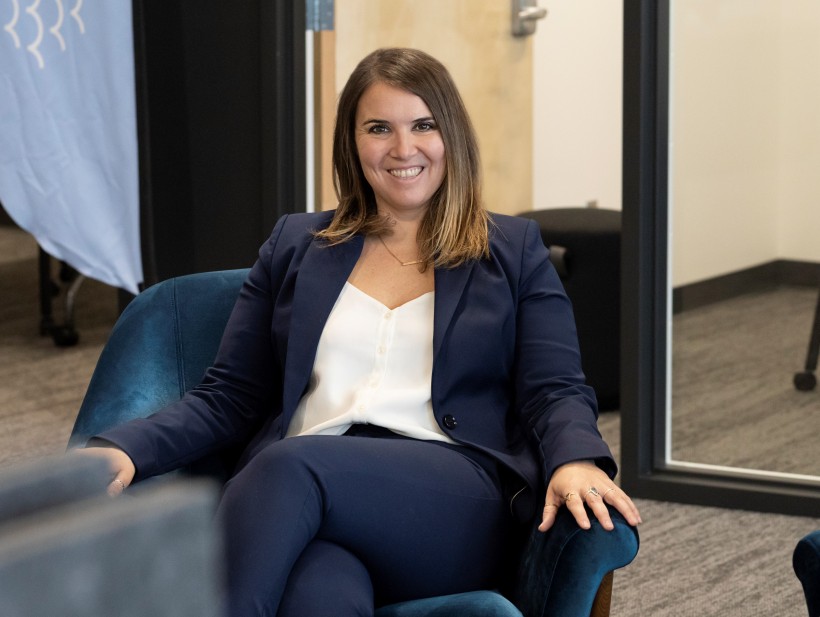Asked for her priorities for 2023, Amélie Desrochers answered instantly: she wants to see more funding for bluetech startups in Quebec.
Desrochers is the Accelerator Head at Novarium, the blue economy support organization based in Rimouski, the city on the mouth of the St. Lawrence River, about 300 kilometres northeast of Quebec City. The organization has the mission of developing the ocean economy in Quebec and working with research institutes to produce new ventures.
Desrochers notes that Quebec placed 51st in the recent ranking of oceantech ecosystems by Startup Genome, the Silicon Valley outfit that assesses innovation ecosystems around the world. With the province’s strength and talent in such sectors as artificial intelligence and biotech, she believes Quebec has all the ingredients to be a bluetech powerhouse. The problem so far: not enough funding.
“If we had been better at attracting investment then we would probably have been in the top 20,” she said. She added that her mission is to work with growing companies to secure significant funding rounds.
Only two years old, Novarium is working with the research institutes in the city and partners across the country to generate more startups and commercialization in the blue economy. As the organization’s website says, it “is connecting the dots between tech startups, academia and research.”
The location of Rimouski is key to the strategy because the Novarium headquarters is close to research institutions such as the marine science facility Institut des sciences de la mer de Rimouski and the Université du Québec à Rimouski.
Desrochers took up her post in early 2021, at the height of the pandemic -- “I inherited an empty building,” she joked -- and the team has grown to join a new wave of Canadian bluetech facilities.
She said Novarium is focusing on four main sectors: AI and data analysis, which she said is the group’s strongest sector; marine engineering and deep technology, which is the second-strongest; food transformation and aquaculture; and marine biotech.
Its flagship accelerator, Flots, offers virtual programming to startups from around Quebec and other parts of Canada. It comprises four levels of programming, depending on the stage of the venture. For example, Startup101 is a 10-week program in which researchers can assess the commercial potential of their research – something akin to Lab2Market. About 40 projects have gone through Start101 so far.
The flagship program is Flots Pro, a 12- to 18-month program that is customized to suit the needs of each scaling company.
Read about the companies in the current Flots Pro cohort.
“Our goal is getting them their first industrial contract with our network of industrial partners, or preparing them for their first round of funding,” she said. Beyond that, the group works with scale-ups, which she defines as companies with more than $5 million in revenue.
She emphasized that the dearth of funding among Quebec bluetech companies does not signal a lack of quality or potential among the Novarium companies. As an example of a shining star in the group, she pointed to Whale Seeker, a Montreal startup whose technology helps vessels to track whales in the ocean to avoid collisions. The company, which is approaching $1 million in annual recurring revenue, last year was awarded a $529,000 contract from Innovative Solutions Canada.
“They’ve been accepted into Techstars and . . . . they’re almost a scale-up,” said Desrochers. “They just haven’t done a seed round yet because, up until now, the VCs didn't clearly understand the ROI and business model of such an advanced technology.”










